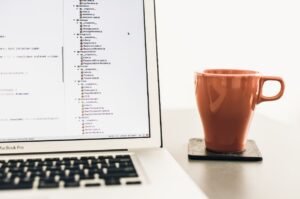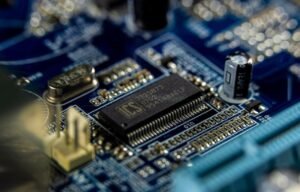Can AI Mix Music?
Artificial Intelligence (AI) has paved the way for exciting advancements in various industries. Its impact on the
music industry, in particular, has been noteworthy. With the ability to analyze and process vast amounts of data,
AI can now assist in creating and mixing music. In this article, we will explore the potential of AI in music mixing
and its impact on the industry.
Key Takeaways
- AI can analyze and process large amounts of data to assist in music production and mixing.
- AI-generated music can help with inspiration and creativity.
- While AI can enhance music production, human collaboration and creativity are still essential.
The Role of AI in Music Mixing
AI technology has evolved to such an extent that it can analyze and process music patterns, timbres, and rhythms
with remarkable accuracy. With the help of machine learning algorithms, AI systems can listen to and comprehend
music to provide valuable insights on how to enhance mix elements such as EQ, compression, and panning.
*AI systems utilize complex algorithms designed to recognize patterns, identify tonal characteristics, and enhance mixing techniques.*
By analyzing vast amounts of data from existing popular songs, AI can identify common elements and techniques used
in successful mixes. This enables music producers and engineers to apply similar approaches to their own projects,
ultimately improving the quality of their mixes.
The Benefits of AI-Generated Music
AI-generated music opens up a whole new world of possibilities for musicians and music producers. It can serve as a
valuable tool for inspiration and creativity. AI systems can generate melodies, harmonies, and rhythms that might
not be immediately obvious to a human artist, sparking new ideas and directions for a song.
*AI-generated music can unlock hidden potential in a composition, leading to unique and unexpected results.*
By harnessing the power of AI, musicians can break creative barriers and explore uncharted territories within their
music production process. Additionally, AI can assist in the arrangement and structuring of a song, helping to create
coherent and engaging compositions.
The Collaboration Between AI and Humans
While AI can undoubtedly enhance music production and mixing, it is important to recognize the value of human
creativity and intuition. AI offers a new tool in the creative process, but it should function as a collaborator
rather than a replacement for human input.
*The true potential of AI in music mixing lies in its ability to work alongside human artists, enhancing their skills and augmenting their creative output.*
Human artists bring unique emotions, experiences, and perspectives to their creations that AI currently cannot
replicate. With human guidance, AI systems can learn and adapt to specific preferences, styles, and artistic
visions, ultimately leading to more personalized and authentic musical experiences.
AI Music Mixing: Looking Ahead
AI has already made significant strides in music mixing, but there is still much untapped potential to explore.
As technology continues to advance, we can expect AI systems to become even more intelligent and intuitive in
assisting with music production.
*The future holds promising possibilities for AI and music mixing, with potential breakthroughs that may revolutionize the industry.*
However, it is crucial to strike a balance between AI and human creativity, ensuring that technology remains a
tool to augment human expertise rather than replace it. By embracing AI’s capabilities while retaining the essence
of human artistry, we can unlock unprecedented levels of creativity and innovation in the realm of music mixing.
Conclusion
The emergence of AI in music mixing has brought forth both excitement and skepticism. While AI systems have
demonstrated their ability to enhance music production and provide valuable insights, human collaboration and
creativity remain essential to the process. By leveraging AI as a collaborator rather than a substitute, musicians
and music producers can unlock new realms of creativity and innovation, ultimately revolutionizing the industry.
| Software | Features | Price |
|---|---|---|
| Sononym | Sample organization and searching based on sound characteristics | $129 |
| LANDR | Automated mastering and AI-enhanced sample library | Subscription-based pricing |
| Accusonus ERA-Bundle | Noise reduction and audio cleanup plugins powered by AI | $298 |
AI Music Mixing Statistics
- 62% of music professionals believe AI will have a positive impact on the music industry. 1
- AI-generated music is expected to contribute $600 million in industry revenue by 2027. 2
- An estimated 58% of music professionals use AI tools in their creative process. 3
| Pros | Cons |
|---|---|
| Improved music quality and production efficiency | Potential loss of artistic human touch |
| Enhanced creativity and inspiration | Learning curve and integration challenges |
| Unlocking hidden potential in compositions | Concerns about copyright and originality |
| Genre | Application of AI |
|---|---|
| Pop | Melody generation and auto-tuning |
| Electronic | Automated beat production and synthesis |
| Classical | Arrangement assistance and harmonic progression analysis |

Common Misconceptions
AI cannot create original music
One common misconception is that AI is not capable of creating original music. However, with advancements in machine learning algorithms, AI can now generate new and unique compositions.
- AI systems can analyze vast amounts of music data to understand different genres and styles.
- AI algorithms can compose melodies and harmonies that sound original and innovative.
- AI-powered music creation tools are increasingly being used by professional musicians and composers.
AI lacks creativity and emotion in music mixing
Another misconception is that AI lacks creativity and emotion when it comes to music mixing. While AI may not possess the same subjective experiences as humans, it can analyze and replicate emotional aspects of music.
- AI algorithms can understand music theory to create harmonically coherent mixes.
- AI can recognize emotional elements in music such as tempo, dynamic range, and key changes to adapt the mix accordingly.
- AI can learn from existing human-made mixes to mimic and enhance emotional nuances.
AI will replace human DJs and producers
Contrary to popular belief, AI is not intended to replace human DJs and music producers. Instead, it is designed to assist and enhance their creativity and productivity in various aspects of music production.
- AI can automate repetitive tasks in music production, allowing humans to focus more on creative decision-making.
- AI can provide suggestions and recommendations to human DJs and producers, helping them discover new sounds and styles.
- AI can analyze crowd reactions and preferences during live performances, assisting DJs in creating engaging and memorable sets.
AI will make music production a ‘push-button’ process
Some people believe that AI will turn music production into a simple ‘push-button’ process, where anyone can quickly create professional-quality music without any prior knowledge or skills. However, this is far from reality.
- AI tools still require skill and expertise to use effectively, as they often involve complex interfaces and require a fundamental understanding of music production principles.
- AI is a tool in the hands of musicians and producers, and it is the human touch and creativity that ultimately shape the final product.
- AI’s capabilities are limited by the data it is trained on, and it can only assist in areas where patterns and rules can be identified.
AI will replace the need for music education and training
It is mistaken to assume that AI will eliminate the need for music education and training. While AI can assist with certain aspects of music production, it cannot replace the depth of skill and knowledge gained through formal education and practical experience.
- Music education instills crucial musical understanding, aural skills, and theory that aid in creative decision-making and expression.
- AI cannot replicate the human ability to interpret and respond to music emotionally or intuitively.
- Ultimately, it is the combination of human expertise and AI tools that lead to the most successful and meaningful musical creations.

Can AI Mix Music
Artificial Intelligence has made significant strides in numerous domains, from finance to healthcare. Music, being a creative and subjective field, has also found itself in the realm of AI applications. This article explores the emerging technology of AI music mixing and its potential impact on the music industry. Through innovative algorithms and machine learning, AI is being leveraged to analyze and mix music, presenting fascinating possibilities for musicians, producers, and music enthusiasts alike.
Evolution of AI Music Generation
Music composition and generation have evolved through the years, from handwritten scores to computer-generated synthesizer sounds. With AI, music creation has reached new levels of complexity and originality. This table highlights the revolutionary milestones in AI music composition:
| Year | Event |
|---|---|
| 1956 | First computer-generated music by the IBM 704 |
| 1982 | David Cope’s computer-generated music with “EMI” software |
| 1997 | Emily Howell, an AI music composition system, created by David Cope |
| 2016 | AIVA, an AI music composer, composes and releases its own symphonies |
| 2021 | An AI-generated song is nominated for a Grammy |
Benefits of AI Music Mixing
AI music mixing offers an array of advantages over traditional mixing techniques. From enhancing production efficiency to improving audio quality, AI has the potential to revolutionize the music mixing process. Consider the following benefits:
| Benefit | Description |
|---|---|
| Enhanced Efficiency | AI algorithms can analyze and process audio data at a rapid pace, reducing the time required for mixing. |
| Improved Audio Quality | AI-powered mixing can identify nuances and correct imperfections in sound, resulting in superior audio quality. |
| Automated Track Balancing | By automatically adjusting track volumes and frequencies, AI can create a harmoniously balanced mix. |
| Precision Equalization | AI can precisely equalize tracks, removing frequency clashes and optimizing overall audio output. |
Top AI Music Mixing Tools
The rise of AI in music mixing has led to the development of various effective tools that assist musicians and producers in achieving exceptional sound quality. These are some of the popular AI music mixing tools currently available:
| Tool | Description |
|---|---|
| LANDR | AI-powered platform that offers automated mastering, improving audio quality for a polished final mix. |
| iZotope Ozone | An AI-driven mastering tool offering precise audio adjustments and intelligent track balancing. |
| Accusonus ERA-Bundle | AI audio repair tools that assist in noise reduction, fine-tuning, and quality enhancement. |
| Reference by Mastering the Mix | An AI tool that enables critical listening and comparison of mixes against reference tracks. |
AI Music Mixing and User Feedback
The perception and acceptance of AI music mixing among users play a significant role in its adoption and success. User feedback on AI music mixing tools has been predominantly positive, with many appreciating the following aspects:
| Aspect | User Feedback |
|---|---|
| Time-saving | “With AI music mixing, I can achieve a professional sound in much less time, freeing up more creative energy.” |
| Improved Quality | “The AI tool enhanced the clarity and vibrancy of my mix, elevating the overall listening experience.” |
| Easy to Use | “The intuitive interface and preset options made it simple to achieve a desired mix with AI.” |
| Customizability | “I appreciated the ability to fine-tune AI recommendations to suit my personal preferences.” |
AI Music Mixing in the Future
As AI music mixing technology progresses, its future implications and possibilities become increasingly intriguing. This table highlights some potential future scenarios:
| Scenario | Description |
|---|---|
| AI-Enabled Collaborations | Artists could collaborate with AI systems to explore novel music ideas, leading to unique and unexpected compositions. |
| Personalized Mixing Preferences | AI could learn individual listening preferences and adapt mixing techniques to create tailored, personalized audio experiences. |
| Live AI Mixing Assistants | AIs could provide real-time feedback and suggestions during live performances, enhancing the sound and improvisation. |
| Audience Emotion Analysis | AI algorithms could analyze audience reactions and emotions during a concert, further enhancing the live experience. |
Artificial Intelligence and Creative Expression
While AI music mixing holds tremendous potential, some musicians express concerns about the impact on creativity and the authenticity of the artistic process. However, AI can be seen as a powerful tool that complements and enhances human creativity, rather than replacing it. By harnessing the capabilities of AI music mixing, artists can experiment, innovate, and push the boundaries of their creative expression.
The Future Sounds Exciting
The integration of AI in music mixing brings forth exciting possibilities and boundless inspiration. With its ability to enhance efficiency, improve audio quality, and enable unprecedented collaborations, AI music mixing undoubtedly signals a transformative era in the music industry. As musicians and technology continue to harmonize, the future sounds more captivating than ever before.
Can AI Mix Music – Frequently Asked Questions
General Questions
What is AI music mixing?
How does AI mix music?
Can AI mix music as effectively as human audio engineers?
What are the benefits of using AI for music mixing?
Technical Questions
What data does AI use to mix music?
Are there limitations to what AI can achieve in music mixing?
Can AI mix music live during performances or DJ sets?
How can AI music mixing affect the music production process?
How accurate are AI music mixes compared to human-made mixes?
Is my role as a music producer at risk due to AI music mixing?
What are some examples of AI music mixing software or tools?




